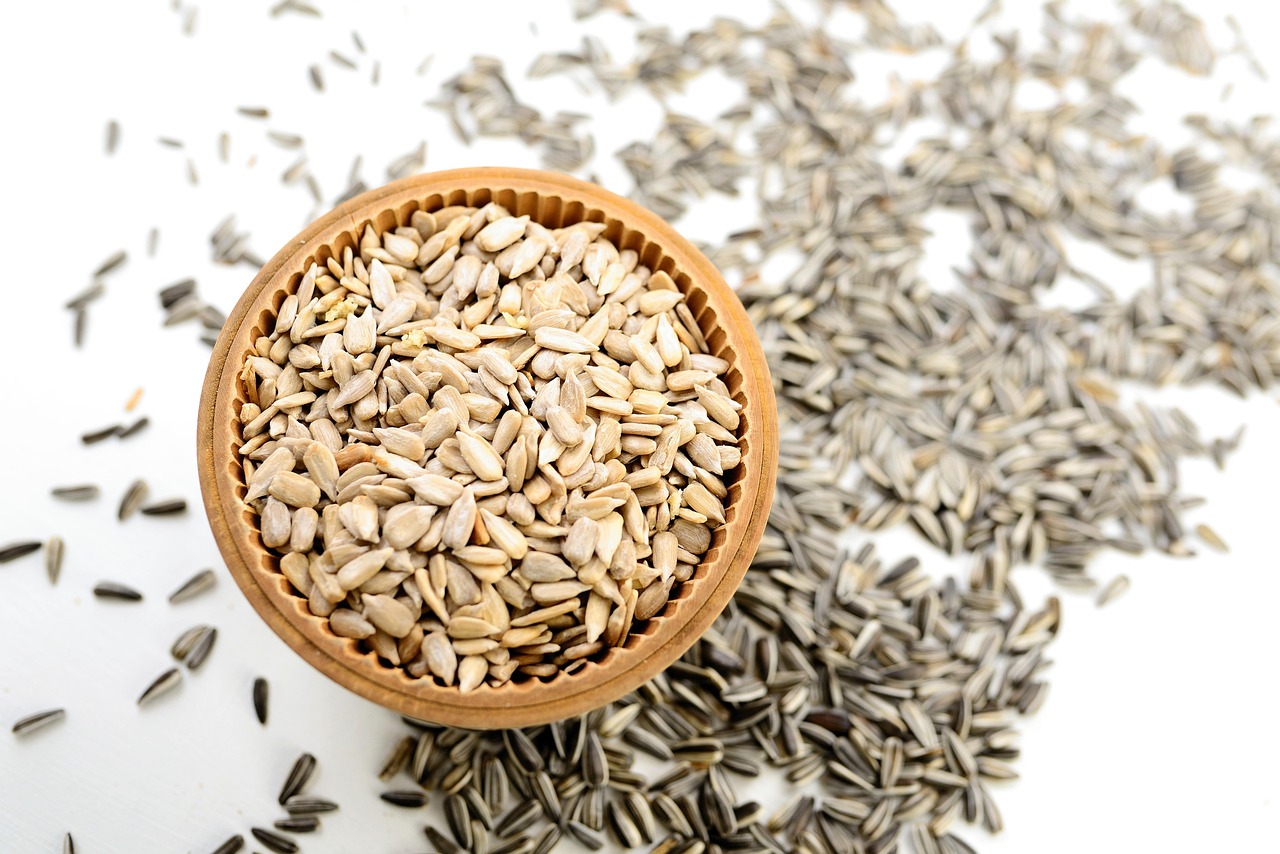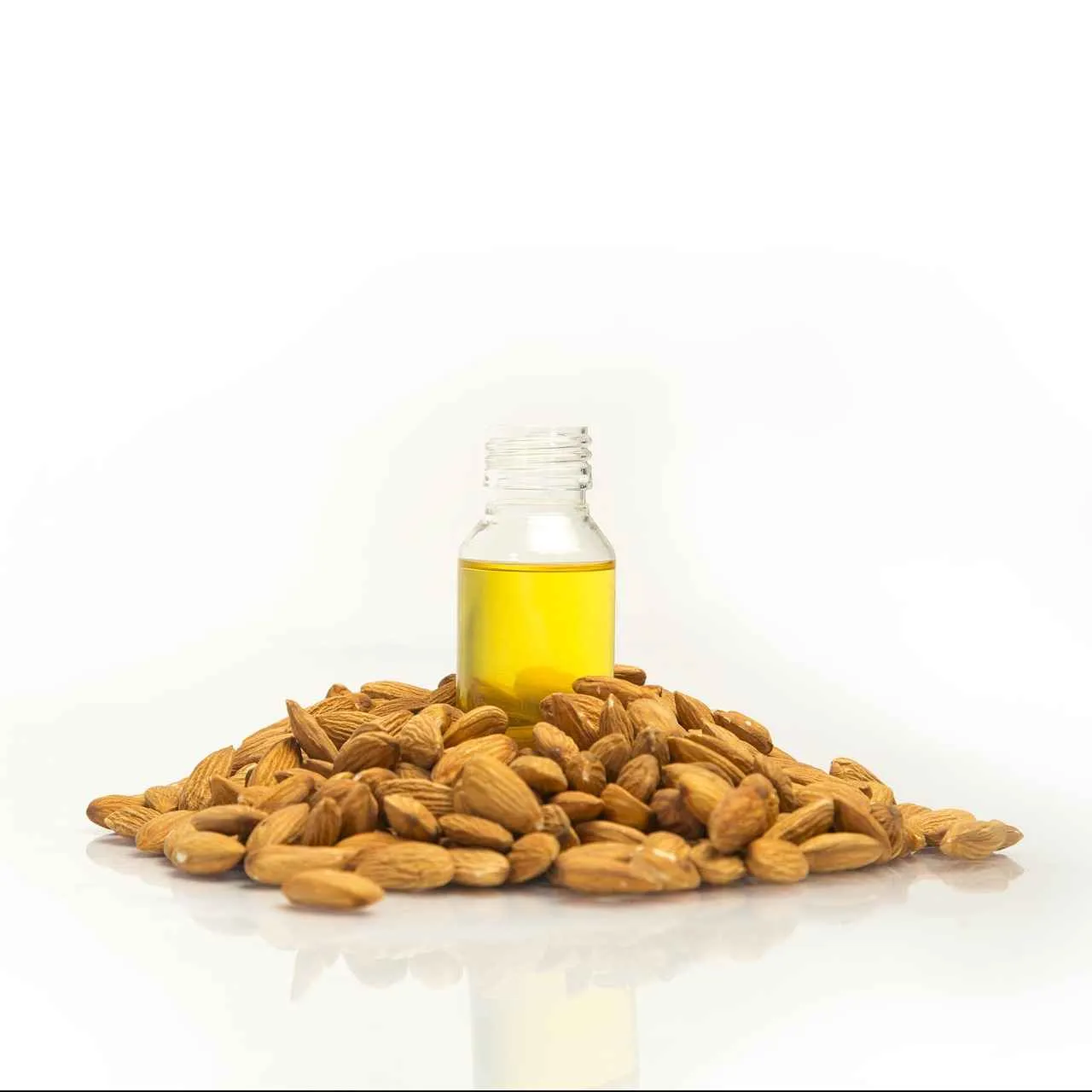This article delves into the benefits of sunflower lecithin for cognitive function, exploring its nutritional components, effects on brain health, and practical applications for enhancing mental clarity and overall well-being.
What is Sunflower Lecithin?
Sunflower lecithin is a natural emulsifier extracted from sunflower seeds, renowned for its high content of phospholipids that are essential for cellular health. Unlike soy lecithin, sunflower lecithin is often preferred due to its non-GMO nature and lower allergenic potential.
Key Nutrients in Sunflower Lecithin
Sunflower lecithin is packed with essential fatty acids, choline, and phosphatidylcholine, all of which play crucial roles in maintaining optimal brain health. Understanding these components is vital for anyone looking to enhance cognitive function.
- The Role of Choline: Choline is essential for the synthesis of neurotransmitters, which are vital for communication between brain cells. It significantly impacts memory and cognitive performance.
- Choline Deficiency and Its Effects: Insufficient choline intake can lead to cognitive decline and impaired brain function. Awareness of choline sources is crucial for maintaining brain health.
- Phosphatidylcholine and Brain Function: This component is vital for maintaining the integrity of brain cell membranes, thus supporting cognitive health and neurotransmission.
Benefits of Sunflower Lecithin for Brain Health
Numerous studies suggest that sunflower lecithin may enhance cognitive function and memory. Research indicates that it may improve memory recall and cognitive agility, making it a valuable addition to a brain-healthy diet.
How to Incorporate Sunflower Lecithin into Your Diet
Incorporating sunflower lecithin into your daily routine can be simple. It can be added to smoothies, baked goods, or even salad dressings. Understanding the appropriate dosage is crucial for maximizing its benefits.
Delicious Recipes Featuring Sunflower Lecithin
- Sunflower Lecithin Smoothie: Blend your favorite fruits with yogurt and a tablespoon of sunflower lecithin for a brain-boosting treat.
- Baked Goods: Substitute sunflower lecithin for traditional emulsifiers in recipes to enhance nutritional content.
In conclusion, sunflower lecithin is a powerful supplement that supports brain health. By understanding its components and benefits, individuals can make informed dietary choices to enhance cognitive function and overall well-being.

What is Sunflower Lecithin?
Sunflower lecithin is a natural emulsifier extracted from sunflower seeds, known for its rich composition of phospholipids that are essential for maintaining cellular integrity and function. Unlike lecithin derived from soy, sunflower lecithin is often preferred due to its non-GMO status and lower allergenic potential. The primary components of sunflower lecithin include phosphatidylcholine, phosphatidylethanolamine, and phosphatidylinositol, all of which play crucial roles in various biological processes.
This natural emulsifier serves as a source of choline, an essential nutrient that supports numerous physiological functions, particularly in brain health. Choline is vital for the synthesis of neurotransmitters, which are crucial for communication between neurons. Moreover, sunflower lecithin is free from the allergens commonly associated with soy, making it a safer option for those with sensitivities.
In addition to its emulsifying properties, sunflower lecithin is rich in essential fatty acids, which are important for maintaining healthy cellular membranes. The unique composition of sunflower lecithin not only supports cellular function but also contributes to overall health and well-being.
Furthermore, sunflower lecithin is versatile in its applications, being used in various food products, supplements, and even cosmetics. Its ability to blend oil and water makes it an ideal ingredient in salad dressings, chocolates, and baked goods. This section aims to provide a comprehensive understanding of sunflower lecithin, highlighting its composition, benefits, and differences from other lecithin sources.
| Component | Function |
|---|---|
| Phosphatidylcholine | Supports brain health and neurotransmitter function |
| Phosphatidylethanolamine | Involved in cell membrane structure |
| Phosphatidylinositol | Plays a role in cell signaling |
- Non-GMO and allergen-friendly
- Rich in essential fatty acids
- Supports cellular function

Key Nutrients in Sunflower Lecithin
play a vital role in supporting brain health and cognitive function. This natural emulsifier, derived from sunflower seeds, is packed with essential components that contribute significantly to overall well-being. In this section, we will delve deeper into the critical nutrients found in sunflower lecithin, particularly focusing on choline and phosphatidylcholine, and their importance for cognitive performance.
- Choline: This nutrient is essential for the synthesis of neurotransmitters, which are crucial for communication between brain cells. Choline is particularly important for memory and cognitive functions. Research indicates that adequate choline intake can enhance memory recall and improve overall cognitive performance.
- Phosphatidylcholine: As a major component of sunflower lecithin, phosphatidylcholine helps maintain the integrity of cell membranes in the brain. It plays a significant role in supporting neurotransmission and protecting brain cells, which can be particularly beneficial in preventing age-related cognitive decline.
- Essential Fatty Acids: Sunflower lecithin contains omega-3 and omega-6 fatty acids, which are crucial for brain health. These fatty acids contribute to the structure of brain cells and are involved in various metabolic processes that support cognitive function.
The combination of these nutrients in sunflower lecithin not only supports brain health but also contributes to improved mood and mental clarity. Incorporating sunflower lecithin into your diet can be a simple yet effective way to boost your cognitive health.
In summary, the key nutrients in sunflower lecithin, including choline, phosphatidylcholine, and essential fatty acids, play an integral role in maintaining brain health and enhancing cognitive function. By understanding these components, individuals can make informed dietary choices to support their mental well-being.
The Role of Choline
is essential for various physiological functions, particularly in the realms of neurotransmitter synthesis and brain development. Choline, an essential nutrient, is a precursor to acetylcholine, a neurotransmitter that plays a crucial role in memory, mood regulation, and muscle control. This article explores the significance of choline found in sunflower lecithin and its profound impact on memory and cognitive performance.
Sunflower lecithin is a natural source of choline, making it an excellent dietary addition for those looking to enhance their cognitive health. Studies have shown that adequate choline intake is associated with improved cognitive function and may even help mitigate age-related cognitive decline. The brain relies on choline for the synthesis of phosphatidylcholine, a vital component of cell membranes that supports neuronal health and function.
Moreover, research indicates that individuals with higher choline levels tend to perform better in memory-related tasks. A study published in the American Journal of Clinical Nutrition found that participants with sufficient choline intake exhibited better performance in both short-term and long-term memory tests. This underscores the importance of including choline-rich foods, such as sunflower lecithin, in one’s diet.
In addition to enhancing memory, choline also plays a role in neuroprotection. It helps maintain the integrity of neuronal membranes and supports the repair processes of brain cells. This protective effect is particularly critical as individuals age, as it may help stave off cognitive decline and improve overall brain health.
To ensure adequate choline intake, consider incorporating sunflower lecithin into your daily meals. Whether through smoothies, salad dressings, or baked goods, this nutrient-rich ingredient can easily enhance your diet while promoting better cognitive function.
Choline Deficiency and Its Effects
Choline is an essential nutrient that plays a critical role in maintaining optimal brain health and function. A deficiency in choline can have significant repercussions on cognitive abilities and overall neurological performance. This section explores the various effects of choline deficiency, emphasizing its importance for brain health.
- Cognitive Decline: One of the most concerning consequences of choline deficiency is cognitive decline. Research indicates that inadequate choline levels can impair memory, attention, and learning capabilities. Individuals may experience difficulties in processing information and recalling memories, which can affect daily functioning.
- Increased Risk of Neurodegenerative Diseases: Low choline intake has been linked to a heightened risk of developing neurodegenerative diseases such as Alzheimer’s and dementia. Choline is crucial for the synthesis of acetylcholine, a neurotransmitter essential for memory and learning. Insufficient levels may lead to disruptions in neural communication.
- Impact on Mood and Mental Health: Choline deficiency can also affect mood regulation. Studies suggest that low choline levels may contribute to increased anxiety and depressive symptoms. This highlights the nutrient’s role not only in cognitive processes but also in emotional well-being.
- Developmental Issues: For pregnant women, choline is vital for fetal brain development. Deficiency during pregnancy can lead to long-term cognitive deficits in offspring. Ensuring adequate choline intake during this critical period is essential for both maternal and child health.
In conclusion, maintaining adequate choline levels is crucial for preserving cognitive function and overall brain health. A balanced diet rich in choline sources, such as sunflower lecithin, eggs, and certain meats, can help mitigate the risks associated with deficiency. By understanding the importance of choline, individuals can take proactive steps to support their neurological health.
Sources of Choline
Choline is an essential nutrient that plays a critical role in many bodily functions, including brain development, liver function, and muscle movement. While sunflower lecithin is a rich source of choline, there are numerous other foods that can help individuals meet their daily choline requirements. Below, we explore various dietary sources of choline to ensure adequate intake.
| Food Source | Choline Content (mg per 100g) |
|---|---|
| Eggs (whole) | 300 |
| Chicken breast | 70 |
| Beef liver | 420 |
| Fish (salmon) | 60 |
| Brussels sprouts | 63 |
| Broccoli | 40 |
| Quinoa | 43 |
Incorporating a variety of these foods into your diet can significantly boost your choline intake. Here are some practical tips for ensuring you get enough choline:
- Start your day with eggs: Whether scrambled, poached, or in an omelet, eggs are one of the best sources of choline.
- Add chicken or fish to your meals: These lean proteins not only provide choline but also essential nutrients for overall health.
- Include vegetables: Incorporate choline-rich vegetables like Brussels sprouts and broccoli into your salads or side dishes.
- Experiment with grains: Quinoa can be a great base for salads or bowls, adding both texture and nutritional value.
By diversifying your food choices and including these choline-rich options, you can support your brain health and overall well-being effectively.
Phosphatidylcholine and Brain Function
Phosphatidylcholine, a vital phospholipid found in sunflower lecithin, is essential for maintaining the structural integrity of brain cell membranes. This component plays a crucial role in promoting healthy cognitive function and effective neurotransmission. Understanding its significance can shed light on how it supports overall brain health.
The brain is composed of approximately 60% fat, and phosphatidylcholine is one of the primary fats that contribute to the formation of cell membranes. This phospholipid is not only a structural component but also plays a key role in the synthesis of acetylcholine, a neurotransmitter involved in memory and learning processes. By facilitating communication between neurons, phosphatidylcholine enhances cognitive performance and aids in the maintenance of memory.
Research indicates that adequate levels of phosphatidylcholine can help in protecting neurons from damage and may even promote neurogenesis, the process of forming new neurons. This is particularly important as we age, as cognitive decline can be a significant concern. Studies have shown that individuals with higher intake of phosphatidylcholine exhibit better memory recall and cognitive agility.
Incorporating sunflower lecithin into your diet is a practical way to boost your phosphatidylcholine levels. This can be achieved through various means, such as adding it to smoothies, baked goods, or salad dressings. The versatility of sunflower lecithin makes it easy to include in daily meals, ensuring that you reap its cognitive benefits.
In conclusion, phosphatidylcholine is a critical nutrient that supports brain function and cognitive health. By enhancing neurotransmission and protecting brain cells, it plays an essential role in maintaining mental clarity and overall well-being. For those looking to improve their cognitive health, incorporating sunflower lecithin into their diet may be a beneficial strategy.

Benefits of Sunflower Lecithin for Brain Health
Sunflower lecithin has garnered attention in recent years due to its potential benefits for brain health. Numerous studies and expert opinions suggest that incorporating sunflower lecithin into one’s diet may lead to enhanced cognitive function and improved memory. This section explores the primary benefits supported by research, providing a comprehensive overview of how sunflower lecithin can positively impact brain health.
- Enhanced Cognitive Function: Research indicates that sunflower lecithin may help improve cognitive abilities, including better focus and mental clarity. The presence of phosphatidylcholine in sunflower lecithin is believed to play a crucial role in enhancing neural communication, which is essential for effective cognitive processing.
- Memory Improvement: Studies have shown that sunflower lecithin may aid in memory retention and recall. The choline found in sunflower lecithin is vital for the production of acetylcholine, a neurotransmitter that is crucial for memory formation and learning.
- Neuroprotective Properties: Sunflower lecithin may offer neuroprotective benefits, helping to shield brain cells from damage associated with aging and neurodegenerative diseases. Its antioxidant properties can combat oxidative stress, which is a major contributor to cognitive decline.
- Support for Mood and Mental Well-being: Some research suggests that sunflower lecithin may also have a positive impact on mood regulation. By supporting neurotransmitter function, it could help mitigate symptoms of anxiety and depression, contributing to overall mental well-being.
In conclusion, the potential benefits of sunflower lecithin for brain health are supported by a growing body of research. By enhancing cognitive function, improving memory, providing neuroprotective effects, and supporting mood, sunflower lecithin can be a valuable addition to a healthy diet. As always, it is advisable to consult with a healthcare professional before making any significant changes to your diet or supplement regimen.
Improving Memory and Cognitive Performance
Recent research highlights the potential of sunflower lecithin in enhancing memory recall and cognitive agility. This natural emulsifier, derived from sunflower seeds, is rich in essential nutrients that play a vital role in brain health. Studies have shown that the components found in sunflower lecithin, particularly choline and phosphatidylcholine, significantly contribute to improved cognitive functions.
One of the primary ways sunflower lecithin benefits cognitive performance is through its rich choline content. Choline is a precursor to the neurotransmitter acetylcholine, which is crucial for memory and learning processes. A study published in the Journal of Nutrition indicated that individuals with higher choline intake demonstrated better memory performance compared to those with lower levels. This suggests that sunflower lecithin could serve as a valuable dietary supplement for those looking to enhance their cognitive abilities.
Furthermore, phosphatidylcholine, a key component of sunflower lecithin, is essential for maintaining the structural integrity of brain cell membranes. Research has shown that adequate levels of phosphatidylcholine can improve neuronal signaling and promote better communication between brain cells. This enhanced communication is vital for cognitive agility, allowing for quicker processing of information and improved problem-solving skills.
In addition to these benefits, sunflower lecithin may also provide neuroprotective effects. Studies suggest that it can help shield the brain from age-related cognitive decline by reducing inflammation and oxidative stress. This means that incorporating sunflower lecithin into your diet could not only improve immediate cognitive performance but also support long-term brain health.
In conclusion, sunflower lecithin presents a promising avenue for those seeking to improve their memory and cognitive performance. Its rich nutrient profile supports various aspects of brain function, making it a beneficial addition to a balanced diet.
Potential Neuroprotective Effects
Sunflower lecithin has garnered attention for its potential neuroprotective benefits, particularly in the context of age-related cognitive decline. As we age, the brain undergoes various changes that can impact cognitive function, memory, and overall mental health. This section delves into the mechanisms through which sunflower lecithin may help safeguard brain cells and promote cognitive longevity.
One of the primary components of sunflower lecithin is phosphatidylcholine, a phospholipid that is essential for maintaining the structural integrity of cell membranes, including those of neurons. By supporting cell membrane fluidity, phosphatidylcholine facilitates effective signal transmission between brain cells, which is crucial for cognitive processes such as memory and learning.
Moreover, sunflower lecithin is rich in choline, a nutrient that plays a vital role in the synthesis of the neurotransmitter acetylcholine. Acetylcholine is integral for memory formation and cognitive function. Studies suggest that adequate levels of choline may help mitigate the effects of cognitive decline by enhancing neurotransmission and promoting neuronal health.
Research has indicated that the antioxidant properties of sunflower lecithin can also protect brain cells from oxidative stress, a major contributor to neurodegenerative diseases. By neutralizing free radicals, sunflower lecithin may help reduce inflammation and cellular damage, thereby supporting overall brain health.
Furthermore, the emulsifying properties of sunflower lecithin can aid in the absorption of fat-soluble vitamins and nutrients that are essential for brain function. This enhanced nutrient absorption can further bolster cognitive health and provide the brain with the necessary tools to combat age-related decline.
In summary, the neuroprotective effects of sunflower lecithin stem from its rich composition of phospholipids, choline, and antioxidants. These components work synergistically to support brain cell integrity, enhance neurotransmission, and protect against oxidative stress, making sunflower lecithin a valuable addition to a diet aimed at promoting cognitive health.

How to Incorporate Sunflower Lecithin into Your Diet
Incorporating sunflower lecithin into your daily routine can be both simple and effective. This nutrient-rich supplement offers numerous health benefits, particularly for brain health. Below are some practical tips to help you seamlessly add sunflower lecithin to your meals.
- Add to Smoothies: One of the easiest ways to consume sunflower lecithin is by adding it to your morning smoothie. Just a tablespoon can enhance the creaminess and provide a nutritional boost.
- Mix into Sauces and Dressings: Sunflower lecithin works well as an emulsifier in salad dressings and sauces. Blend it into your favorite homemade vinaigrette for a silky texture.
- Incorporate into Baked Goods: When baking, consider adding sunflower lecithin to your recipes. It can improve the moisture and shelf life of breads and muffins.
- Stir into Yogurt or Oatmeal: For a quick and nutritious breakfast, stir a spoonful of sunflower lecithin into your yogurt or oatmeal. It adds creaminess and enhances the nutritional profile.
- Use in Energy Bars: If you make homemade energy bars, sunflower lecithin can be a great addition. It helps bind ingredients together while boosting the nutrient content.
When starting with sunflower lecithin, it’s important to consider the recommended dosage. Generally, a daily intake of 1 to 2 tablespoons is advised, but it’s always best to consult with a healthcare provider to tailor the dosage to your individual needs.
By incorporating sunflower lecithin into your meals, you not only enhance the taste and texture of your food but also promote better brain health and overall well-being. Experiment with these suggestions to find what works best for you!
Recommended Dosages
Understanding the appropriate dosage of sunflower lecithin is crucial for maximizing its benefits. This section provides essential guidelines for safe and effective consumption, ensuring you can enjoy its advantages without adverse effects.
Sunflower lecithin is often available in various forms, including granules, liquid, and capsules. The ideal dosage can vary based on individual health needs, age, and the specific health goals you aim to achieve. Here are some general recommendations:
- For General Health: A typical dosage is around 1 to 2 tablespoons of sunflower lecithin granules or liquid per day. This amount is often sufficient to support overall health and well-being.
- For Cognitive Support: If you are looking to enhance cognitive function, consider increasing the intake to 2 to 3 tablespoons daily. This dosage can help provide the necessary choline and phosphatidylcholine for brain health.
- For Specific Health Conditions: Individuals with certain health conditions may require higher doses. It’s advisable to consult with a healthcare professional to determine the right amount tailored to your needs.
When starting sunflower lecithin, it is wise to begin with a lower dosage and gradually increase it. This approach allows your body to adjust and helps identify any potential sensitivities. Additionally, always consider the form of sunflower lecithin you are using, as concentrations can differ significantly between products.
Lastly, remember to combine sunflower lecithin with a balanced diet and healthy lifestyle for optimal results. Staying hydrated and maintaining regular physical activity will further enhance its benefits.
In conclusion, understanding and adhering to the recommended dosages of sunflower lecithin is essential for maximizing its health benefits. By following these guidelines and consulting with healthcare professionals when necessary, you can safely incorporate this beneficial supplement into your daily routine.
Delicious Recipes Featuring Sunflower Lecithin
Incorporating sunflower lecithin into your diet can be both enjoyable and beneficial for your brain health. This section presents a variety of delicious recipes that highlight the versatility of sunflower lecithin, making it easy to add this nutritious ingredient to your meals.
- Sunflower Lecithin Smoothie
- Ingredients:
- 1 banana
- 1 cup spinach
- 1 tablespoon sunflower lecithin
- 1 cup almond milk
- 1 tablespoon honey (optional)
- Instructions:
Blend all ingredients until smooth. Enjoy a nutrient-packed smoothie that supports brain function!
- Ingredients:
- Sunflower Lecithin Energy Bites
- Ingredients:
- 1 cup oats
- 1/2 cup nut butter
- 1/4 cup honey or maple syrup
- 2 tablespoons sunflower lecithin
- 1/4 cup chocolate chips
- Instructions:
Mix all ingredients in a bowl. Roll into small balls and refrigerate for a quick energy boost anytime!
- Ingredients:
- Sunflower Lecithin Salad Dressing
- Ingredients:
- 1/4 cup olive oil
- 2 tablespoons apple cider vinegar
- 1 tablespoon sunflower lecithin
- Salt and pepper to taste
- Instructions:
Whisk all ingredients together until emulsified. Drizzle over your favorite salad for a healthy twist!
- Ingredients:
These recipes not only taste great but also allow you to easily incorporate sunflower lecithin into your diet, enhancing your overall brain health and well-being. Experiment with these ideas and discover how sunflower lecithin can fit into your culinary repertoire!







